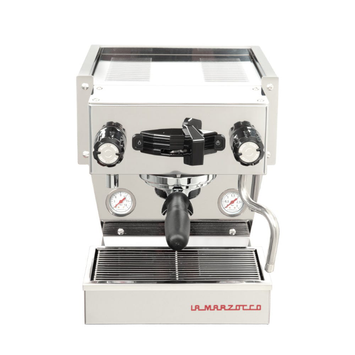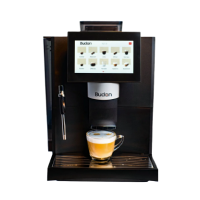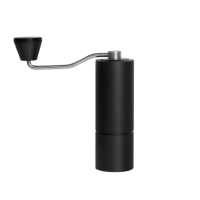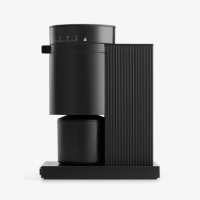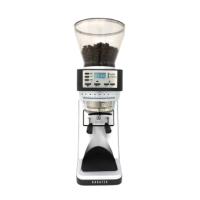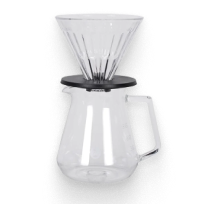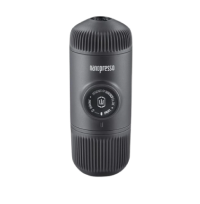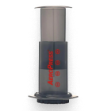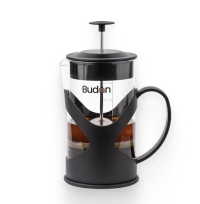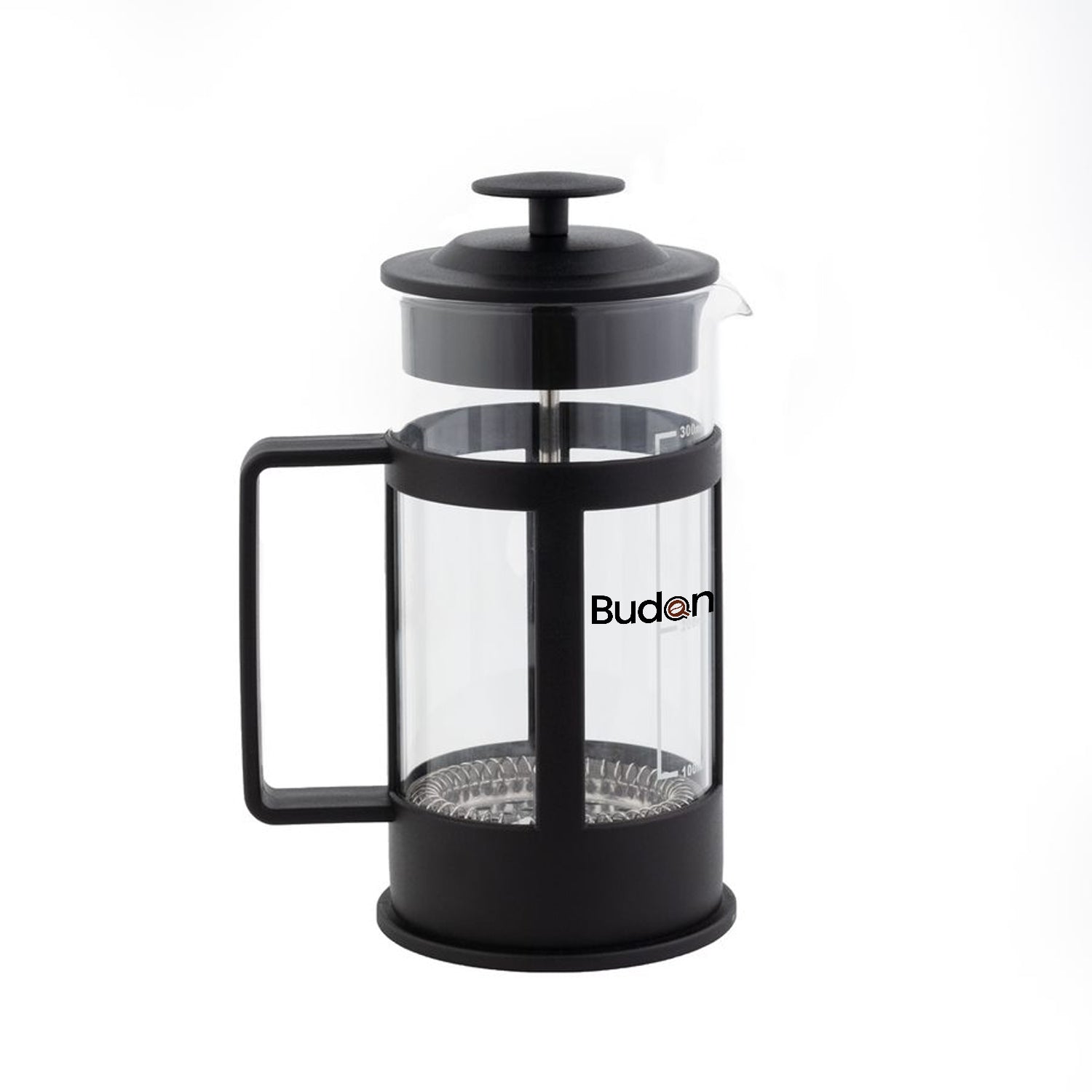Coffee Brewing Machines: Your Ultimate Guide to Exceptional Coffee
Coffee brewing machines are much more than simple kitchen gadgets or café equipment—they are the backbone of consistent, high-quality coffee preparation that can transform everyday routines into delightful experiences. Whether you are a home enthusiast seeking the best cup or a business owner aiming to impress customers, coffee brewing machines ensure precision, repeatability, and ease. These machines manage key brewing variables such as water temperature, pressure, and extraction time with incredible accuracy, eliminating much of the guesswork in traditional brewing.
By automating or assisting in various parts of the coffee preparation process, coffee brewing machines reduce human error, enhance flavor consistency, and allow for scalability. For businesses, this translates to improved customer satisfaction, faster service, and better profitability. For consumers, the benefit lies in the ability to consistently enjoy their favorite coffee styles—from rich espresso shots to smooth pour-over blends—without leaving home. Selecting the right coffee brewing machines is an investment that pays off in daily enjoyment and operational efficiency.
Understanding Coffee Brewing Machines Importance
The significance of coffee brewing machines is growing as consumers demand café-quality coffee anytime, anywhere. These machines are engineered to bring precision control over brewing parameters, something manual methods often struggle with. Key factors such as water temperature consistency (typically between 90°C to 96°C for optimal extraction), pressure stabilization (essential for espresso machines), and timed water flow are precisely regulated.
Coffee brewing machines help preserve the delicate aromatic oils and flavors that make coffee distinctive, ensuring that bitterness or sourness from over- or under-extraction are minimized. This reliability is vital in professional settings where every cup must meet customer expectations. For home users, machines reduce complexity while elevating taste, making specialty coffee accessible. As coffee culture becomes more sophisticated, investing in a quality coffee brewing machine aligns perfectly with evolving tastes and higher standards.
Features Characterizing the Best Coffee Brewing Machine
When searching for the best coffee brewing machine, certain features consistently differentiate high performers from mediocre models.
- Precise Temperature Control is vital as temperature fluctuations can dramatically alter flavor profiles. Machines with PID (Proportional-Integral-Derivative) controllers maintain stable heat, enabling perfect extraction.
- Stable Pressure Systems especially in espresso machines, ensure the water is forced through coffee grounds at ideal pressures, usually around 9 bars, creating rich crema and balanced flavor.
- User-Friendly Interfaces such as touchscreens with programmable options simplify operation and allow even novice users to make complex drinks.
- Automated Cleaning Cycles improve hygiene and reduce labor by regularly flushing the machine and alerting users when descaling or maintenance is needed.
- Robust Build Quality using materials like stainless steel and brass enhances machine longevity, crucial for commercial environments.
These features often influence coffee brewing machine price but result in long-term reliability and satisfaction.
Factors Influencing Coffee Brewing Machine Price
Several factors determine the coffee brewing machine price, requiring buyers to balance features against budget.
- Type of Machine: Espresso machines with dual boilers, grinders, and smart controls are priced higher than simple drip coffee makers.
- Capacity: Machines capable of brewing hundreds of cups daily are built sturdier and cost more than home-use units.
- Brand Reputation: Established manufacturers command premiums due to proven quality, warranties, and after-sales support.
- Technology: Advanced features like app connectivity, pressure profiling, and milk frothing automation add to the cost.
- Material Quality: High-grade metals and precision components increase manufacturing costs, reflected in coffee brewing machine price.
By understanding these variables, buyers can choose models offering the best return on investment.
Benefits of Investing in the Best Coffee Brewing Machine
Investing in the best coffee brewing machine benefits coffee quality, operational efficiency, and brand perception.
- Consistency in taste strengthens customer loyalty and satisfaction.
- Time Efficiency enables higher throughput without compromising quality.
- Versatility allows a broader beverage menu appealing to varied customer preferences.
- Waste Reduction through precise dosing controls lowers operational costs.
- Durability means fewer replacements and repairs, saving money long term.
These factors justify the initial coffee brewing machine price and enhance profitability.
Maintenance Practices for Coffee Brewing Machines
Proper care ensures coffee brewing machines operate smoothly and last longer.
- Daily Cleaning of all coffee contact points prevents buildup of oils and residues that spoil flavor.
- Weekly Deep Cleaning includes backflushing espresso machines and descaling to remove mineral deposits.
- Periodic Replacement of seals, filters, and gaskets maintains pressure integrity and hygiene.
- Scheduled Professional Servicing calibrates components and preempts breakdowns.
Neglecting maintenance can degrade coffee quality and increase costly downtime.
Commercial Coffee Brewing Machines: Meeting Business Demands
Commercial coffee brewing machines must balance high volume, speed, and consistency. Features like multiple group heads enable simultaneous espresso pulls, while large boilers maintain steam pressure for milk frothing without waiting. Bean-to-cup machines streamline operations by automating grinding through brewing, minimizing staff training and errors.
Proper machine selection depends on daily cup volume, menu complexity, and available staffing. Investing in high-capacity, durable models may increase coffee brewing machine price but pays off in efficiency and customer retention.
Integration of Smart Technology in Coffee Brewing Machines
Smart technology improves usability and maintenance management.
- App Integration allows remote brewing control, customization, and diagnostics.
- Maintenance Alerts prompt users to perform cleaning or part replacement proactively.
- Usage Analytics help businesses optimize supply ordering and machine utilization.
Though these features add to coffee brewing machine price, they reduce downtime and enhance customer experience.
Aligning Coffee Brewing Machines to Consumer Preferences
In today’s diverse coffee market, consumer preferences vary widely, creating an imperative for coffee brewing machines to offer versatility and customization that cater to multiple taste profiles. Understanding these preferences is essential for both home users seeking personal satisfaction and businesses striving to appeal to a broad customer base.
For espresso aficionados, the cornerstone of a great coffee brewing machine lies in precise pressure control. Espresso extraction is a delicate balance, requiring around 9 bars of pressure to force hot water evenly through finely ground coffee. Machines equipped with advanced pressure profiling technology enable baristas or users to tailor extraction pressures for different beans or roast levels, unlocking nuanced flavors and aromas. This capability is crucial for specialty coffee shops aiming to differentiate themselves through flavor complexity.
Milk-based drink lovers form a substantial segment of coffee consumers, driving demand for machines with adjustable steam wands or integrated milk frothers. The ability to control steam pressure and frothing time allows for the creation of creamy microfoam essential for lattes, cappuccinos, and macchiatos. Some high-end coffee brewing machines offer programmable milk temperature and texture settings, enabling baristas to maintain consistency across multiple drinks and satisfy customer expectations precisely.
Cold brew and iced coffee enthusiasts are another growing demographic. Coffee brewing machines that include specialized cold brew functions or adjustable extraction settings for low-temperature brewing cater to this trend. These devices often utilize slower, gentle extraction methods that preserve the coffee’s natural sweetness and reduce acidity, appealing to health-conscious consumers. Integrating cold brew capabilities into coffee machines also provides businesses with a competitive edge by expanding their beverage menu and meeting seasonal demands.
Beyond specific brewing styles, modern coffee consumers value personalization, expecting their beverages to be tailored to individual taste preferences such as strength, temperature, milk alternatives, and flavor add-ins. Coffee brewing machines with programmable profiles, multiple beverage presets, and user-friendly interfaces enable this customization at scale. These features empower businesses to deliver a consistent yet personalized coffee experience that fosters customer loyalty.
The trend towards hybrid machines that combine manual control with automation reflects the evolving needs of consumers who want the best of both worlds—precision without complexity. These versatile machines can appeal to skilled baristas and casual drinkers alike, accommodating everything from single-origin pour-overs to frothy cappuccinos.
Ultimately, coffee brewing machines that successfully align with consumer preferences support a wider beverage repertoire, increasing customer satisfaction and driving sales growth. Whether serving a diverse crowd in a bustling café or brewing personalized drinks at home, versatile and adaptable coffee machines are indispensable in today’s competitive coffee landscape.
Energy Efficiency Alongside Environmental Considerations in Coffee Brewing Machines
In today’s world, where sustainability and energy conservation are becoming top priorities for consumers and businesses alike, coffee brewing machines have evolved to incorporate numerous features aimed at reducing energy consumption and minimizing environmental impact. The integration of energy-efficient technologies not only helps lower operational costs but also positions brands as responsible and forward-thinking, appealing to eco-conscious customers.
One of the key energy-saving features in modern coffee brewing machines is programmable shutoff. This function automatically powers down the machine after a period of inactivity, preventing unnecessary energy waste during off-hours or slow service times. By optimizing power usage without sacrificing readiness, programmable shutoff helps businesses significantly reduce their electricity bills, making it an economical choice for cafés, restaurants, and offices with fluctuating coffee demand.
Low-power heating elements represent another advancement in energy efficiency. Traditional heating components consume substantial amounts of electricity to reach and maintain optimal brewing temperatures. Newer materials and designs enable rapid heating with lower energy input while maintaining temperature stability essential for high-quality extraction. This innovation decreases energy consumption during both the startup phase and throughout continuous operation, benefiting both the environment and the bottom line.
Water-efficient brewing cycles also contribute to sustainability goals. Coffee machines designed with precise water flow control and optimized extraction times use only the necessary volume of water for each brew, minimizing waste. Additionally, some machines incorporate recirculation systems that reuse water during the heating phase, further reducing overall water consumption. These features are particularly valuable in regions facing water scarcity and for businesses seeking to enhance their green credentials.
Beyond operational efficiency, the materials and construction of coffee brewing machines play a critical role in environmental considerations. Machines manufactured with recyclable components, such as stainless steel, BPA-free plastics, and eco-friendly insulation materials, contribute to reducing landfill waste. Brands adopting sustainable sourcing for parts and packaging reinforce their commitment to environmental stewardship, which resonates strongly with consumers increasingly prioritizing sustainability in their purchasing decisions.
Moreover, the lifecycle impact of coffee brewing machines is an important factor. Durable, repairable, and modular machines extend product life and reduce the frequency of replacements, mitigating electronic waste. Many manufacturers now offer programs for refurbishing or recycling old units, supporting circular economy initiatives within the coffee industry.
Some cutting-edge coffee brewing machines also feature smart energy management systems that monitor usage patterns and adjust power consumption dynamically. These systems provide valuable insights to operators, allowing them to implement best practices for energy conservation tailored to their specific operational environment.
Incorporating energy efficiency and environmental considerations into coffee brewing machines not only aligns businesses with global sustainability goals but also enhances their corporate social responsibility (CSR) profiles. This proactive approach attracts environmentally conscious customers, strengthens brand loyalty, and can even open doors to green certifications or incentives.
In summary, investing in coffee brewing machines equipped with advanced energy-saving features, sustainable materials, and smart management technologies is a win-win strategy. It reduces operational costs, lessens environmental footprint, and bolsters a company’s reputation as a responsible leader in the coffee service industry. These factors make energy-efficient and environmentally considerate coffee brewing machines indispensable in the modern marketplace.
Space and Installation Considerations for Coffee Brewing Machines
Before acquiring a coffee brewing machine, thorough assessment of available space and infrastructure is vital to ensure seamless integration and optimal performance. Countertop dimensions or dedicated back-of-house areas dictate the maximum machine size you can accommodate. Smaller venues such as kiosks or boutique cafés often require compact machines that maximize brewing capabilities without occupying excessive real estate. While these smaller units save space, they may have limitations on capacity or multi-functionality, necessitating a careful balance between space constraints and operational needs.
Power supply specifications must also be confirmed. Commercial coffee brewing machines often require dedicated electrical circuits with appropriate voltage and amperage ratings to support heating elements, pumps, and grinders. Inadequate or shared power sources can cause performance instability or frequent electrical issues. Water access is another critical element. A reliable, clean water connection with appropriate pressure and filtration ensures consistent brew quality and minimizes machine wear caused by mineral deposits or contaminants.
Professional installation is strongly recommended to optimize machine performance and preserve manufacturer warranties. Certified technicians can correctly connect plumbing, electrical systems, and configure machine settings according to manufacturer guidelines. Proper setup reduces the risk of malfunctions, leaks, or damage, which can lead to costly repairs and downtime. Furthermore, expert installation often includes operator training and preventative maintenance planning, empowering staff to utilize the machine effectively and maintain peak performance over time.
Troubleshooting Common Coffee Brewing Machine Issues
Despite advances in coffee brewing technology, operational challenges occasionally arise. Common issues include inconsistent extraction, where coffee shots may taste weak, bitter, or uneven due to factors like incorrect grind size, tamping pressure, or water temperature fluctuations. Low pressure during brewing can result from pump malfunctions, blocked water lines, or worn seals, adversely affecting espresso quality. Steam wand blockages, often caused by milk residue buildup, can impair frothing capabilities and hygiene.
Routine cleaning and calibration form the backbone of troubleshooting and preventing such issues. Daily cleaning protocols should include flushing group heads, purging steam wands, and emptying drip trays. Regular descaling prevents mineral buildup that can clog water pathways and reduce heating efficiency. Calibration of grinders and machine settings ensures precise control over extraction parameters, maintaining consistent flavor profiles.
Timely replacement of worn parts like gaskets, filters, and burrs further reduces the incidence of mechanical faults. Training baristas and staff in basic troubleshooting enhances responsiveness, allowing quick identification of issues such as leaks, pressure drops, or unusual noises. Rapid response minimizes service interruptions and customer dissatisfaction. Access to technical support and clear maintenance guides also plays a crucial role in effective issue resolution, ensuring your coffee brewing machine delivers excellent performance day after day.
Emerging Trends Shaping the Future of Coffee Brewing Machines
The coffee industry is experiencing a wave of innovation, with emerging technologies promising to revolutionize coffee brewing machines. Artificial Intelligence (AI)-assisted brewing systems are among the most exciting developments, enabling machines to learn user preferences, adapt brewing parameters dynamically, and maintain unparalleled consistency. This technology reduces human error and delivers perfectly crafted coffee shots tailored to individual taste profiles.
Sustainability is also a major focus in machine design. Manufacturers are adopting eco-friendly materials, including biodegradable plastics and recyclable metals, reducing environmental footprints. Water-saving innovations such as recirculating systems and optimized flow control minimize resource consumption. Energy efficiency improvements, including advanced insulation and power management algorithms, further contribute to greener operations.
User interfaces are becoming more intuitive with touchscreens offering customizable settings, real-time diagnostics, and even remote operation via smartphone apps. This ease of use caters to both skilled baristas and casual operators, enhancing productivity and minimizing training needs.
Hybrid coffee brewing machines that combine manual control with automated features are gaining popularity. These models allow users to engage creatively with brewing while benefiting from consistency and speed—appealing to a wider user base.
Although these cutting-edge features may increase coffee brewing machine price, the investment unlocks new market opportunities by differentiating brands, improving efficiency, and meeting evolving consumer expectations for quality and sustainability.
Final Thoughts on Coffee Brewing Machines
Selecting and investing in the right coffee brewing machine is fundamental to delivering consistently excellent coffee that delights customers and drives business success. A well-chosen machine enhances operational efficiency by streamlining preparation, reducing wait times, and lowering maintenance burdens. Equally important is the ability to produce coffee that meets or exceeds customer expectations for flavor, temperature, and presentation.
Understanding the different types of coffee brewing machines, from entry-level drip brewers to advanced espresso and bean-to-cup systems, empowers buyers to align their purchase with specific business models, volume requirements, and skill levels. Being aware of price ranges, feature sets, and after-sales support ensures that the investment is not only financially sound but also sustainable.
Regular maintenance, proper staff training, and troubleshooting preparedness extend machine life and uphold quality, preventing costly downtime and preserving brand reputation. Keeping an eye on industry trends and emerging technologies allows businesses to future-proof their coffee programs and remain competitive in an evolving marketplace.
Ultimately, coffee brewing machines are more than just equipment—they are strategic assets that transform how businesses engage customers, enhance staff productivity, and elevate brand experiences. Careful selection, backed by expert consultation and service, unlocks the full potential of your coffee offering and supports lasting growth.
Conclusion: Investing in the Best Coffee Brewing Machines for Success
Choosing the right coffee brewing machines is critical for businesses and enthusiasts seeking quality, consistency, and efficiency. The best coffee brewing machine enhances flavor extraction, supports diverse brewing styles, and elevates customer experience. Understanding the coffee brewing machine price in relation to features and brand value ensures you get the best return on investment. Whether you’re selecting compact drip machines or advanced espresso systems, investing smartly pays off in superior coffee and operational reliability



















